Moral lesson understanding Reading Comprehension Worksheets for Ages 3-9
5 filtered results
-
From - To
Introduce your young learners to the world of values with our engaging Moral Lesson Understanding Reading Comprehension Worksheets. Designed for children aged 3-9, these worksheets enhance reading skills while instilling important life lessons. Through captivating stories and thoughtful questions, kids will improve their comprehension abilities and grasp essential morals such as honesty, kindness, and responsibility. Each worksheet is crafted to make learning both fun and educational, ensuring children connect with the stories and understand their deeper meanings. Empower your child to become a better reader and a compassionate individual with our expertly designed reading comprehension activities.
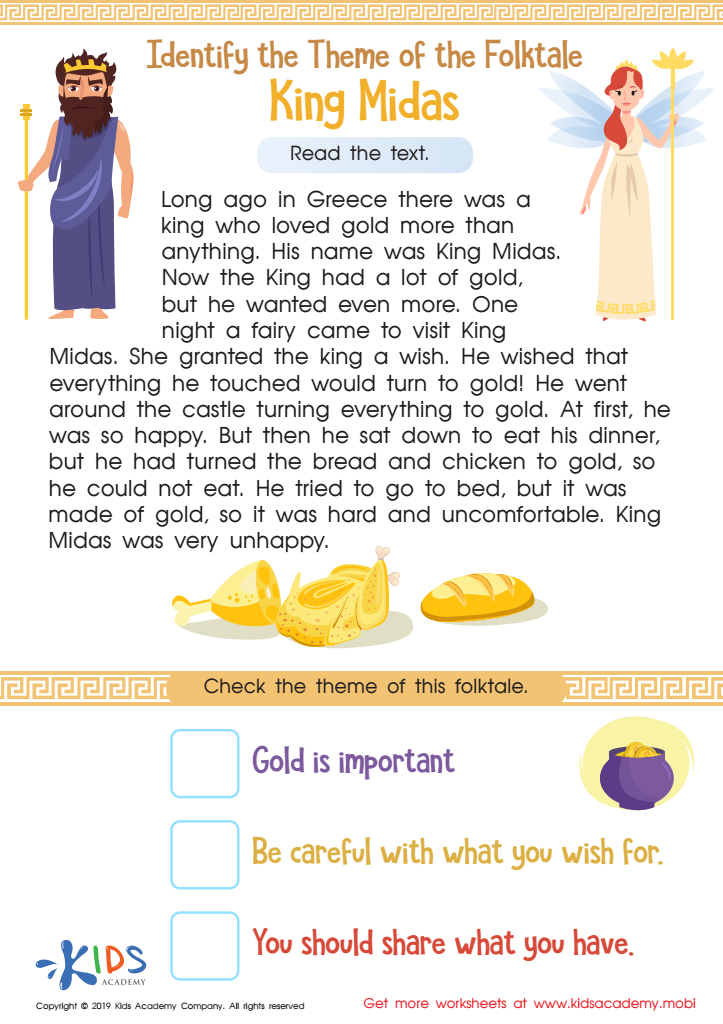

King Midas Worksheet
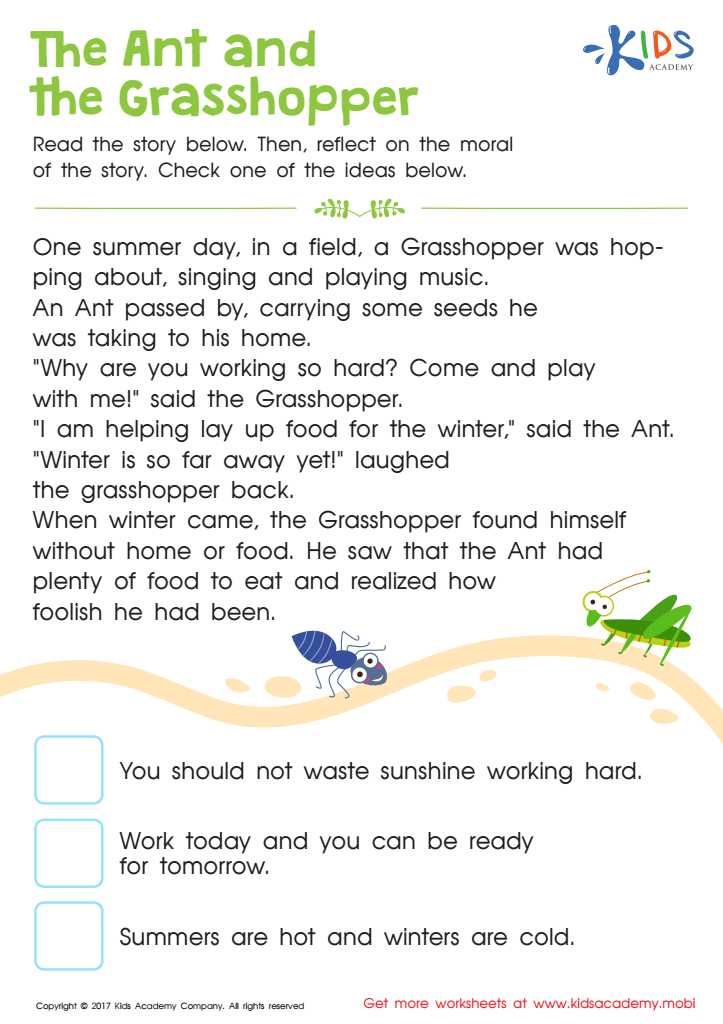

The Ant and The Grasshopper Printable
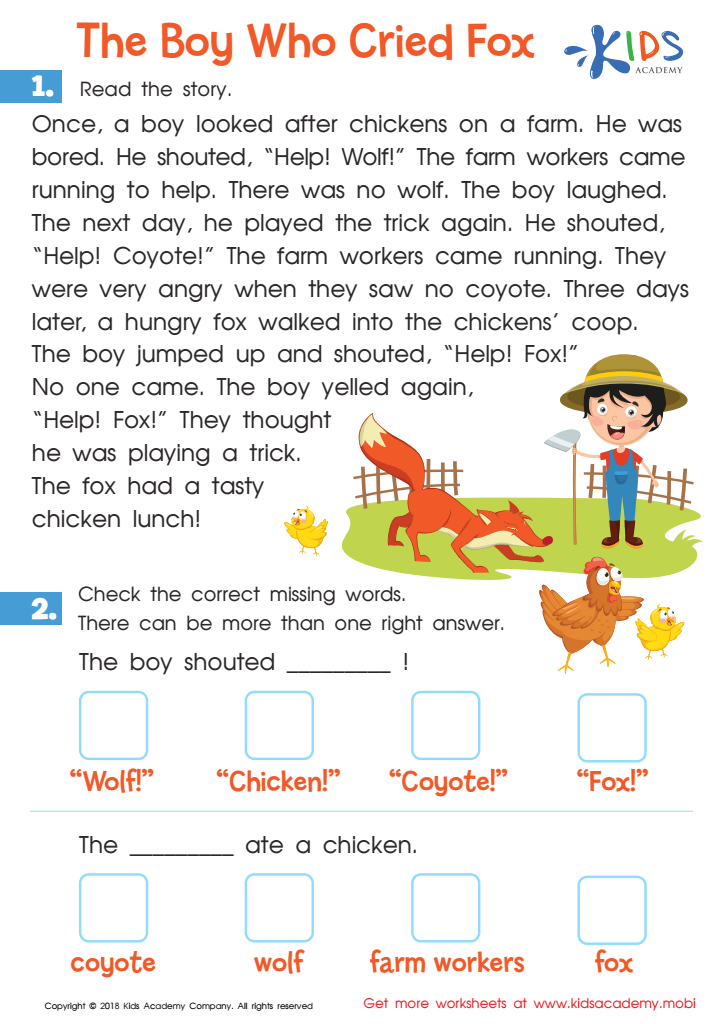

The Boy Who Cried Fox Worksheet
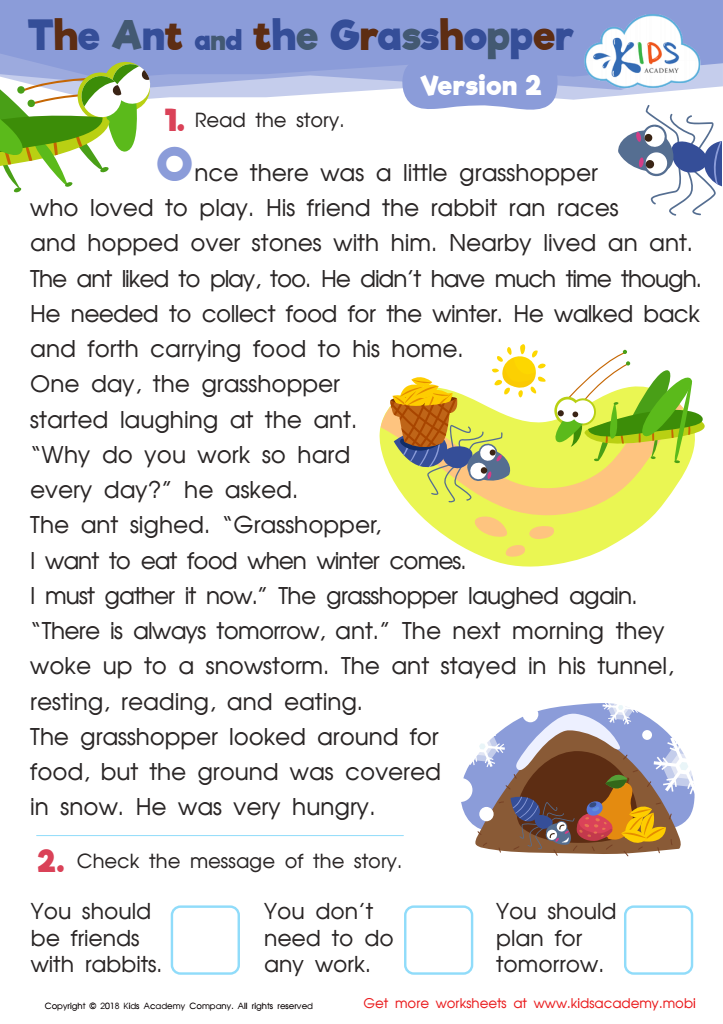

The Ant and The Grasshopper Version 2 Worksheet
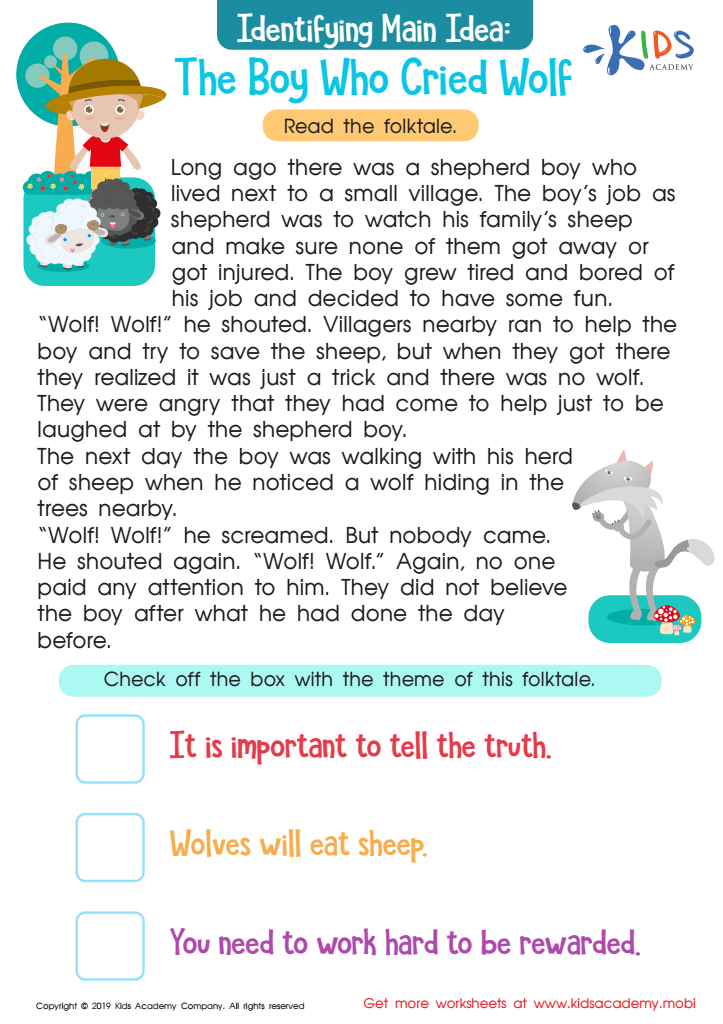

The Boy Who Cried Wolf Part 2 Worksheet
Understanding moral lessons through reading comprehension is crucial for children ages 3-9, as it significantly shapes their character development and social skills. At this formative stage, youngsters are highly impressionable and beginning to navigate the concepts of right and wrong. Books with moral lessons offer relatable scenarios and characters that help children grasp ethical principles and empathy, aiding their understanding of consequences and fostering emotional intelligence.
For parents and teachers, integrating these lessons into early reading not only enhances literacy skills but also instills values such as kindness, fairness, and responsibility. This dual focus supports holistic growth, making children more likely to exhibit positive behavior in real-life situations.
Moreover, reading comprehension helps in critical thinking and inference. When children dissect stories to glean moral values, they practice these cognitive skills, which are essential for problem-solving and sound decision-making. Fostering a child's ability to interpret and internalize moral lessons can create a foundation for lifelong integrity and civic-mindedness.
Encouraging moral lesson understanding through reading ensures that education goes beyond academic learning, nurturing well-rounded individuals capable of contributing positively to society. Thus, parents and teachers play a pivotal role in guiding young minds to align their actions with ethically sound decisions from an early age.

 Assign to My Students
Assign to My Students






.jpg)









